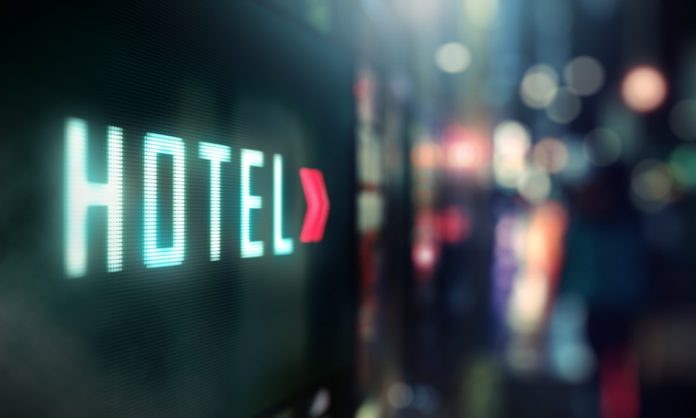
Across the United States, hotel operators are wondering if the current travel environment is a prelude to the future of hospitality and if they should take steps to grow and manage businesses more efficiently. While hotel operators can’t predict the future, they can still find new ways to adapt to the unexpected cost pitfalls resulting from the pandemic and prepare for what’s to come. To successfully navigate this period, hotel operations will need to slim down into a leaner, more efficient enterprise while increasing agility to cater to new guest expectations and experiences.
The big picture is that hotel operators can adapt to the unexpected when necessary. Since hotels can’t force demand, controlling costs becomes more critical when exacerbated by the current hotel landscape, which has necessitated several investments to remain open for business, from contactless check-in to revenue management tools. Understandably, hotel operators may worry if the next major trend is lurking to wipe out their recent updates with another wave of mandated investments. And hotels need to integrate these new technologies and partnerships into their operational structure in a way that balances costs without backing the hotel into a corner.
Some hoteliers are finding themselves trapped in the balance between financial restraint and calculated investment. Although guest interaction has reached new heights through contactless technology, many areas of the property – like on-site restaurants – have been dormant for over a year. With key revenue-generating square footage off-limits and reduced budgets constraining operators’ choices, hoteliers are keen to capitalize on the trends that can be impactful and valuable for their business.
Operators need to be informed to make the best decisions based on the options available amidst a challenging moment in hospitality’s history. Properties equipped with advanced data analysis and revenue management tools have an advantage during periods of economic turmoil; these hotels are using updated information and informative reporting tools to understand the factors impacting their local area, allowing them to respond quickly and capitalize when necessary. Hotel operations have gone beyond traditional constraints, giving operators the agility to find what works based on accurate data.
Winds of Change
Recognizing the evolution of travel prior to the pandemic will help hotel operators understand trends that will remain post-pandemic. Even before the pandemic, travelers had been using digital channels to book rooms and interact with operators. Guest entertainment had shifted to accommodate guest devices in lieu of on-property services. Hotel food and beverage (F&B) became more popular, and guests were spending more time in communal areas.
Over a year later, these trends remain in place at hotels but have changed. Guests continue to embrace contactless technology, public spaces have shuttered or scaled back with capacity mandates, and much more. Hotels have been able to save on purchasing costs by limiting their amenities and services, thus placing a cap on their potential earnings by not providing new purchasing options to guests. The next step for hotel operators as travel gradually resumes is to look at where the hotel can generate revenue, giving them the tools to best meet guests’ current needs.
Hotel operators can be missing F&B opportunities as a takeout and delivery renaissance sweeps the United States. Consumers are using delivery and takeout more often because of the pandemic, and hotel operators can take advantage of F&B through a takeout and delivery angle. Hotel operators can promote takeout and delivery through marketing and repositioning strategies. And some hotels can offer limited F&B services to small groups to maintain the restaurant’s operation and keep generating revenue.
Meetings and events (M&E) are seeing a similar renaissance with hybrid meetings combining in-person and virtual attendance. The M&E industry has not yet set a clear alternative to social distancing, but the push for hybrid events shows a willingness from travelers to return to certain norms in the future.
Return to Leisure
The hotel industry’s strength and success often derives from the activity of business travelers. Some are holding out hope for business travel to return as vaccines roll out, but many analysts are pointing to a resurgence in leisure. Because of this, hotel operators should be up-to-date on the status of their local market, potential changes, and forecasts for the return of local attractions.
As guest culture shifts toward guestrooms, food delivery, and digital interactions, hotel operators must understand what is important to convince people to travel. Hoteliers need access to accurate, reliable analytics tools capable of examining a myriad of factors of hotel performance, and they need to understand the data in the context of their local market. Modern revenue management technology informs procurement strategies, optimizes room rates at strategic moments, and creates new revenue opportunities when possible.
Successful hotel operators are creative and flexible when interacting with guests and managing costs. Some trends have escalated because of the pandemic, and, therefore, hotel operators need to value the past in addition to looking forward. Post-COVID hotel operations are being refined – not redefined – throughout this period. Hotel operators can take this opportunity to become leaner, more efficient, and more resilient in the face of economic adversity.












This article says absolutely nothing. It’s like reading a “research paper” written the day before it was due.